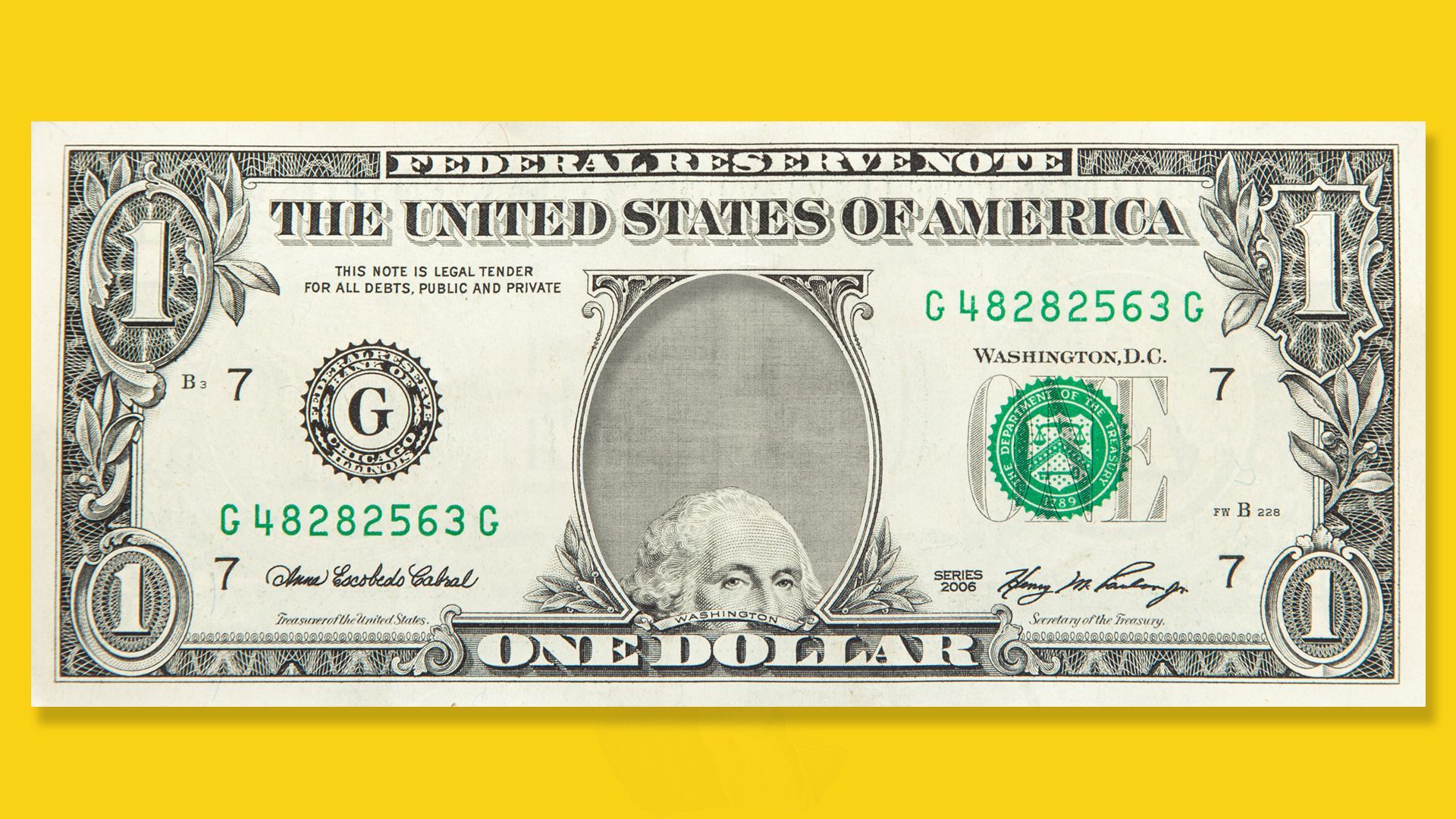| | | | | | | | | | | Axios Markets | | By Matt Phillips and Emily Peck · Jul 20, 2022 | | 🐪 Wednesday. It's chill vibes today from team Markets, with not-so-terrible news on energy prices and stonks for your morning read. Plus, if you scroll down a bit, we answer a reader's "loonie" question. Let's do this! Today's newsletter, edited by Kate Marino, is 1,145 words, 4.5 minutes. | | | | | | 1 big thing: Stocks are kinda having a good month |  | | | Illustration: Sarah Grillo/Axios | | | | Stocks are finally on track for gains in July, though it's far from clear we've seen the last of the bear market gloom, Matt writes. Driving the news: The S&P 500 is up 4% this month ... and if the month ended today it'd be the index's best showing since March. - Ten of the 11 industry sectors of the S&P 500 are flashing green, led by consumer discretionary, information technology and communication technology shares.
- The tech-heavy Nasdaq has climbed a perky 6.2%.
- The Russell 2000 index of smaller stocks is nearly 5.4% higher.
The big picture: The July rally provides a respite for beaten-down portfolios. - Since peaking on Jan. 3, the S&P 500 broke down badly, as the Federal Reserve pivoted to a rate-hiking stance.
- The S&P had shed as much as 23.6% by mid-June, as a bear market took hold. Since then, things have stabilized, with the index rising more than 6%.
The intrigue: What changed? Oil prices and interest rates, mostly, as global demand showed signs of sagging, both in the U.S. and China, in the face of nosebleed energy costs. - Early last month, U.S. crude oil was hovering around $120 a barrel. (It's now about $100.)
- Prices at the gas pump were over $5 a gallon. (They're now under $4.50.)
- The decline in energy prices has bolstered confidence that inflation, which hit a 41-year high in June, is unlikely to spiral wildly higher.
- That's helped push 10-year Treasury yields, a crucial input into the formulas virtually all investors use to value stocks, from roughly 3.50% last month to around 3% now.
Will it last? Of course not! Nothing in the markets ever really lasts. But if oil prices stabilize — a big if, given the war in Ukraine — and inflation expectations keep falling and the Fed doesn't go full-on Volcker with interest rates, then we could have a decent foundation for a push higher in stocks. What to watch: The Fed's rate decision next Wednesday — everyone expects a hike of three-quarters of a percentage point — along with chair Jerome Powell's tonal qualities during his post-meeting press conference. |     | | | | | | 2. Catch up quick | | ❌ European Commission asks member countries to cut natural gas use by 15%. (NYT) ⚡️ Russia signals it will restart limited flows of gas to Europe through the Nord Stream pipeline. (Bloomberg) 🌾 Ukraine and Russia near deal to end blockade of grain exports. (FT) |     | | | | | | 3. The energy pinch is easing |  Note: Crude oil prices are futures on West Texas Intermediate crude. Wholesale gasoline is futures on RBOB. Data: FactSet; Chart: Axios Visuals Benchmark prices for energy are falling in commodities markets, taking some of the fuel off of the inflationary fire that U.S. policymakers have been battling, Matt writes. Driving the news: Both crude oil and wholesale gasoline prices have rolled over since June, signaling that the worst of the recently elevated energy costs might have passed. The big picture: Prices have eased for a number of demand-related reasons. The bottom line: It's an ugly process but supply and demand seem to be finding a balance, even if prices are higher than we're used to. |     | | | | | | A message from Axios | | Your guide to communicating effectively | | |  | | | | Learn how to communicate more effectively with Axios' new book, Smart Brevity: The power of saying more with less. Axios' co-founders share their secret sauce on the power of saying more with less to get people to pay attention to what matters more to you. Pre-order today and get an exclusive Smart Brevity video. | | | | | | 4. Companies' silence on Dobbs |  | | | Illustration: Sarah Grillo/Axios | | | | Only 10% of companies have made, or plan to make, a public statement about abortion in the wake of the Supreme Court's decision overturning Roe v. Wade. - That's according to a survey of approximately 300 public, private and nonprofit entities released yesterday by the Conference Board, Emily writes.
Why it matters: In recent years, businesses have increasingly taken stands on social issues — particularly around race and LGBTQ rights — but abortion so far has proven too controversial. - The picture is different internally: The survey finds that 51% of companies either have addressed reproductive rights with employees or plan to do so.
Between the lines: Companies have tended to steer clear of a cluster of highly controversial issues, viewing them as best left to government regulation, including not only abortion but also immigration and gun regulation, says Paul Washington, executive director of the Environmental, Social and Governance Center at the Conference Board. Of the companies talking about abortion internally, most are communicating information on existing health care benefits or announcing new policies around travel expenses or paid time off. - This tracks with the way companies have handled other social issues as they move from controversial to more mainstream.
- For example: When same-sex marriage was starting to take off as a cause, many companies first addressed the issue in the context of employee benefits, Washington says.
Keep reading. |     | | |  | | | | If you like this newsletter, your friends may, too! Refer your friends and get free Axios swag when they sign up. | | | | | | | | 5. Q&A: The loonie conundrum |  Data: Koyfin; Chart: Axios Visuals We asked and you answered (er, asked). In response to our call for all the markets-related questions that keep you up at night, Peter Moulson in Ontario wrote: "I live and work in Canada but vacation regularly in the US ... The USD:CAD exchange rate has a significant impact on our budget. I don't understand the significant increase in the USD against CAD given the interest rate increases made by the Bank of Canada as well as the fact that oil and gas are performing (relatively) well and Canada is primarily a resource-based economy. Can you explain why the CAD has been underperforming the USD?" Axios Markets' Felix Salmon says: Peter's absolutely right. When oil prices are in the $100 per barrel range, as they are now, the Canadian dollar has historically traded at or near parity with its U.S. counterpart. Given that the U.S. is importing record quantities of Canadian oil, the currency of the petrostate to our north should be doing very well. So why is the loonie weak? There are two main reasons. - This oil boom is unusual in that it's not being accompanied by an investment boom in new petro projects. A greener Canada means the loonie has decoupled from the oil price.
- Exchange rates rise and fall not on absolute rates, but on relative ones. Right now, the markets expect the Canadian central bank to stop raising rates before the Fed does. That's because Canada is more indebted than the U.S., making it "more sensitive to policy tightening" than we are, in the words of one FX analyst. The sooner the central bank is likely to stop tightening, the weaker the currency.
The bottom line: It's a lot cheaper for Americans to visit Montreal this summer than it is for Canadians to visit New York. |     | | | | | | A message from Axios | | Your guide to communicating effectively | | |  | | | | Learn how to communicate more effectively with Axios' new book, Smart Brevity: The power of saying more with less. Axios' co-founders share their secret sauce on the power of saying more with less to get people to pay attention to what matters more to you. Pre-order today and get an exclusive Smart Brevity video. | | | | ⚡️ 1 thing Felix loves: A gas station with personality — like Tanforan Shell Car Wash in San Bruno, California. Michael Grant of the great Why Is This Interesting newsletter has a fantastic interview with the owner, wherein you will learn why the T-Rex has a disclaimer; how many kittens fit onto a vacuum sign; and what led to the whole station becoming plant-based, among many other wonders. Also, @MileyCyrus: Please read this and then call your agent. Thank you! |  | | Why stop here? Let's go Pro. | | | | | | Axios thanks our partners for supporting our newsletters. If you're interested in advertising, learn more here.
Sponsorship has no influence on editorial content. Axios, 3100 Clarendon Blvd, Arlington VA 22201 | | | You received this email because you signed up for newsletters from Axios.
Change your preferences or unsubscribe here. | | | Was this email forwarded to you?
Sign up now to get Axios in your inbox. | | | | Follow Axios on social media:    | | | | | |
Post a Comment
0Comments